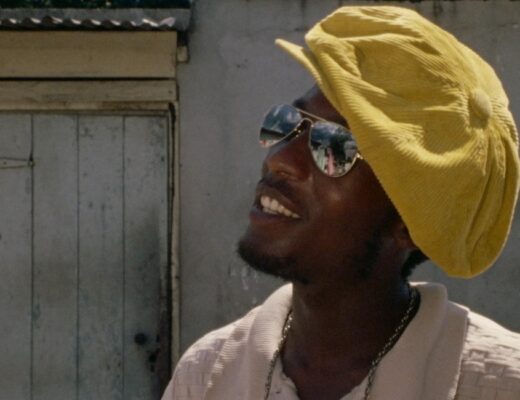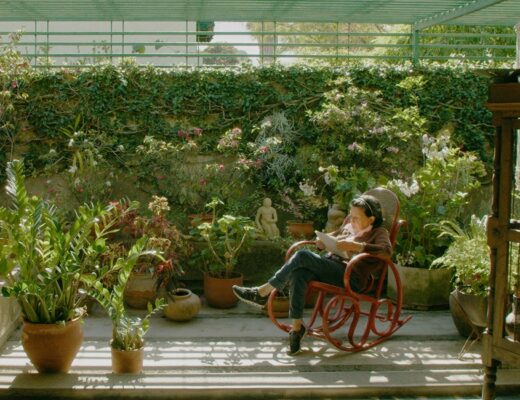I’m not sure people entirely remember the film Audition. Like much of his body of work, director Takashi Miike’s breakthrough into global recognition is perhaps best remembered for its transgressive, stomach-churning imagery, in particular its propulsive final act. Like a lot of horror movies that gained notoriety in the early aughts, Audition’s unforgettable torture sequences quickly became the stuff of video store legend, a testing ground for any horror fan eager to prove their mettle and the latest in a wave of films to face equal scorn and admiration from critics for its brutality. But for all alternate reverence and derision of that final act, something often gets lost when talking about Audition: namely, the first two acts. Critics often discuss Audition as a film that is practically split down the middle, a romance with satirical undertones in its first half, and a visceral horror in its second, as opposed to what it really is — an oddly tender story about loneliness, haunting, and far subtler horror than only that of its tortures.
Audition centers on a white-collar widower, Shigeharu Aoyama (Ryo Ishibashi), who is living alone seven years after the death of his wife. His teenage son suggests that he remarry, and Shigeharu’s film producer friend Yoshikawa proposes an interesting method of finding the ideal bride: to audition a parade of young women for an acting role in a fictional project as a means of screening potential candidates. Shigeharu is instantly smitten with Asami Yamazaki (Eihi Shiina), a quiet, submissive woman in her early 20s who seems to be the perfect woman. As their courtship deepens, Asami is revealed to not be entirely what she seems, and as Shigeharu learns more about her, the danger she poses becomes increasingly apparent.
Upon its release in the U.S. and UK, Audition polarized critics just as much as any of its so-called “torture porn” contemporaries. As part of the wave of extremity that swept through the horror genre in the late-’90s and early-’00s, Audition was equally lauded and condemned for its iconic final stretch, a downhill sprint of all mess of violence and mutilation. It’s easy to see why critics reacted this way — the final stomach-churning sequence of the film is more than enough to short circuit everything that has come before it, particularly when what came before is an understated courtship between two reticent characters executed at a relatively measured pace. Indeed, Audition descends into utter madness so suddenly that its other horror elements can get lost in the mix, but the film is never (as some assert) entirely a romantic or satirical piece.
Among all the myriad genre lines the film straddles, at its heart Audition is a ghost story. Shigeharu and Asami are equally haunted by the presence of Ryoko, Shigeharu’s deceased wife, whose feted skill at classical piano colors the film’s score, and whose image, lying in a hospital bed, recurs in the widower’s mind as he considers his new partner. Asami dresses in long white skirts and dresses, evoking a bride, a blank canvas, a ghost, and even her complete disconnection from the world she lives in suggests that the plane she inhabits is one slightly different from our own. In Miike’s strange, liminal spaces, Asami’s own haunting comes to the fore, the wide, empty rooms lending themselves to a sense of uncanny horror. Asami’s ballet studio, the site of her trauma, is left empty save for the man who tortured her, kept deliberately immobile and trapped in his own memories of both hurting and adoring her. Save one barely mentioned female victim, Asami’s trail of destruction often involves men being kept alive and in pain, that they might learn devotion to her — and instead of realizing the very real dangers of the present, both Asami and Shigeharu remain forever obsessed with the griefs of the past. In Audition, nothing ever really goes away.
Miike’s world is a lonely one. Despite Japan being one of the most densely populated nations in the world, we rarely see more than two or three people in any one scene. Every locale that Shigeharu visits is seemingly abandoned, whether it’s the places that lie in the wake of Asami’s destruction or even the venues he takes her to on dates. Restaurants, offices, studios — all seem bereft of any more than a few other bystanders, and even they are often quiet non-entities, as uninterested in Shigeharu’s life as he is in theirs, and when he continues his assessment of Asami in the restaurant, it’s just as empty as the audition room. Miike’s characters, particularly Shigeharu, are fixed at a remove from the rest of the world, alone in cramped offices, cars, and even lifts, seeming uncomfortable whenever any other presence infringes upon that isolation. The few times that we do see large gatherings of people, like in a taped concert or a group of women at a bar, Shigeharu and Yoshikawa dismiss them as crass and pathetic, as though their need for community represents some kind of moral failure. This permanent sense of wide-scale isolation that Miike constructs for Audition is hardly all that different from the real Japan of the 1990s, a country that had already acknowledged on a national scale three decades prior the problem of citizens dying alone and remaining undiscovered (a phenomenon known as kodokushi) and was beginning to understand loneliness as an epidemic among its people. Reflecting this emotional landscape in the physical landscape of Audition, Miike makes the country feel practically empty, devoid of even the opportunity for intimacy, conjuring an atmosphere in which it becomes far more understandable and tragic the things one might ignore in search of real, human connection.
Part of Kicking the Canon – The Film Canon.







